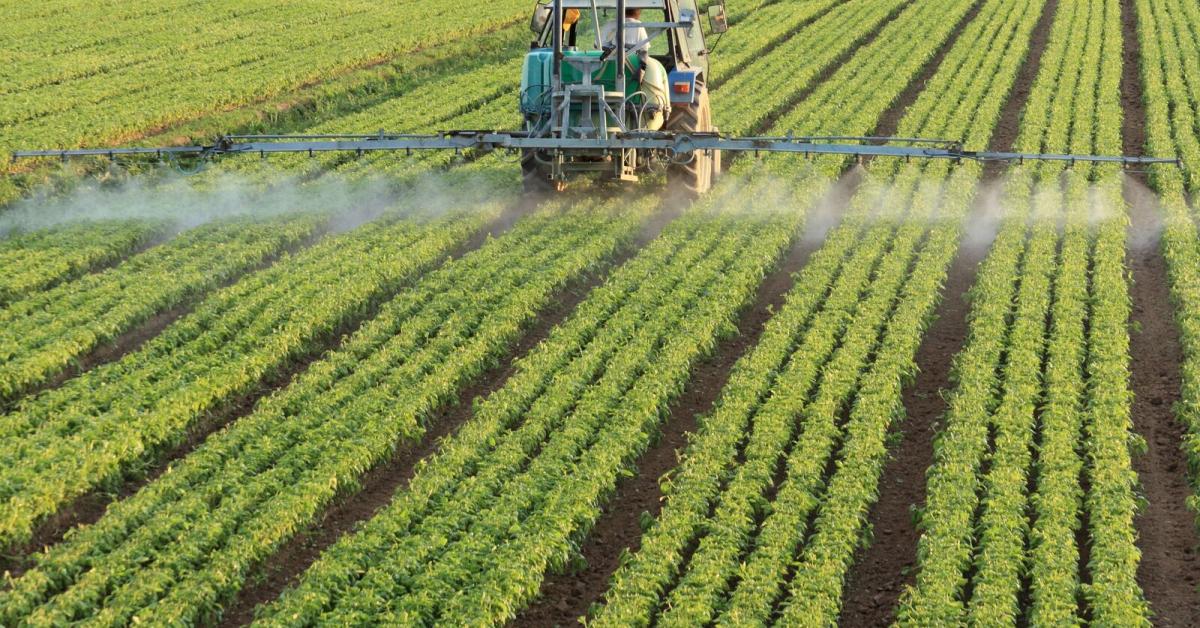The European Commission (EC) has proposed the reduction of chemical pesticide use by 50 percent and restore nature across the European Union (EU).
The goal is to better protect public health and recover plunging wildlife populations.
The plan on repairing habitats, according to Virginijus Sinkevicius, head of EU environmental policy, would oblige EU countries to take action in restoring nature to at least 20% of EU land by 2030 and all degraded ecosystems by the middle of the century.
The suggestions call for a complete prohibition on the use of chemical pesticides in sensitive locations including public parks and protected regions.
According to studies, a senior EC official admitted that lower yields and higher food prices could result from a large reduction in pesticide use.
But the official emphasized that there are modern methods that can successfully substitute chemical pesticides without affecting agriculture's productivity.
If the EU states accept the new pesticide regulations, they would take the place of the previous, laxer legislation that, according to the Commission, was enforced unevenly throughout the EU.
By 2030, the proposed rule establishes mandatory targets for increasing farmland bird populations, halting the decrease of pollinators and restoring the natural flow of 25,000 km (15,500 miles) of rivers. To contribute to the EU-wide objectives, nations will need to create national strategies.
The European Parliament and EU nations will need to approve the nature plan, which has been delayed twice. Some EU nations have attempted to delay or pull back sustainable farming regulations by invoking the impact of the Ukraine war on the world food supply.
Sinkevicius blamed Russia's obstruction of the export of millions of tons of Ukrainian grain as the sole source of the current world food crisis. He cautioned that if the destruction of nature wasn't stopped, it would eventually make farming in Europe more difficult.



 Nikkei 225 Hits Record High Above 56,000 After Japan Election Boosts Market Confidence
Nikkei 225 Hits Record High Above 56,000 After Japan Election Boosts Market Confidence  Lake beds are rich environmental records — studying them reveals much about a place’s history
Lake beds are rich environmental records — studying them reveals much about a place’s history  Federal Judge Blocks Trump Administration Move to End TPS for Haitian Immigrants
Federal Judge Blocks Trump Administration Move to End TPS for Haitian Immigrants  U.S. Stock Futures Rise as Markets Brace for Jobs and Inflation Data
U.S. Stock Futures Rise as Markets Brace for Jobs and Inflation Data  FDA Targets Hims & Hers Over $49 Weight-Loss Pill, Raising Legal and Safety Concerns
FDA Targets Hims & Hers Over $49 Weight-Loss Pill, Raising Legal and Safety Concerns  Ukraine minerals deal: the idea that natural resource extraction can build peace has been around for decades
Ukraine minerals deal: the idea that natural resource extraction can build peace has been around for decades  Asian Stocks Slip as Tech Rout Deepens, Japan Steadies Ahead of Election
Asian Stocks Slip as Tech Rout Deepens, Japan Steadies Ahead of Election  CK Hutchison Launches Arbitration After Panama Court Revokes Canal Port Licences
CK Hutchison Launches Arbitration After Panama Court Revokes Canal Port Licences  Burkina Faso and Mali’s fabulous flora: new plant life record released
Burkina Faso and Mali’s fabulous flora: new plant life record released  Uber Ordered to Pay $8.5 Million in Bellwether Sexual Assault Lawsuit
Uber Ordered to Pay $8.5 Million in Bellwether Sexual Assault Lawsuit  Rise of the Zombie Bugs takes readers on a jaw-dropping tour of the parasite world
Rise of the Zombie Bugs takes readers on a jaw-dropping tour of the parasite world  Toyota’s Surprise CEO Change Signals Strategic Shift Amid Global Auto Turmoil
Toyota’s Surprise CEO Change Signals Strategic Shift Amid Global Auto Turmoil  Trump Administration Appeals Court Order to Release Hudson Tunnel Project Funding
Trump Administration Appeals Court Order to Release Hudson Tunnel Project Funding  How to create a thriving forest, not box-checking ‘tree cover’
How to create a thriving forest, not box-checking ‘tree cover’  An unexpected anomaly was found in the Pacific Ocean – and it could be a global time marker
An unexpected anomaly was found in the Pacific Ocean – and it could be a global time marker 































